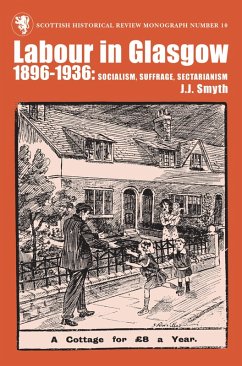This book provides the first single overview of Labour's electoral progress in Glasgow from its hesitant steps in the shadow of Liberalism to the moment it became the dominant party in the city in parliamentary and municipal politics. The unfolding narrative is not one of uninterrupted progress but a more complex story of partial breakthroughs and setbacks. Labour's electoral challenge is detailed over forty years and focuses on local elections more than parliamentary. This allows a broader and fuller picture to be presented rather than the narrower emphasis on the 'Red Clydeside' period of the Great War and immediately after.
The Great War was the critical turning point. After 1918 Labour emerged from being a permanent minority to a position where it could genuinely seek to present itself as the major political voice in Glasgow. The nature of this transformation is identified as both the radicalising effect of the war itself and the attendant changes this provoked in Labour's attitude to its actual and potential constituency. Unlike other studies of the franchise system, the view expressed here is that the franchise was biased against the working class and this operated against Labour. However, Labour was effectively handicapped by its own ambivalence towards complete democracy, fuelled by fear of the poor and belief in the reactionary tendencies of the existing female local electorate. While the war resolved the franchise issue for Labour, in Glasgow the Party's own mobilisation over housing provided the means to appeal to the new female electorate.
The Great War was the critical turning point. After 1918 Labour emerged from being a permanent minority to a position where it could genuinely seek to present itself as the major political voice in Glasgow. The nature of this transformation is identified as both the radicalising effect of the war itself and the attendant changes this provoked in Labour's attitude to its actual and potential constituency. Unlike other studies of the franchise system, the view expressed here is that the franchise was biased against the working class and this operated against Labour. However, Labour was effectively handicapped by its own ambivalence towards complete democracy, fuelled by fear of the poor and belief in the reactionary tendencies of the existing female local electorate. While the war resolved the franchise issue for Labour, in Glasgow the Party's own mobilisation over housing provided the means to appeal to the new female electorate.
Dieser Download kann aus rechtlichen Gründen nur mit Rechnungsadresse in A, B, BG, CY, CZ, D, DK, EW, E, FIN, F, GR, H, IRL, I, LT, L, LR, M, NL, PL, P, R, S, SLO, SK ausgeliefert werden.









